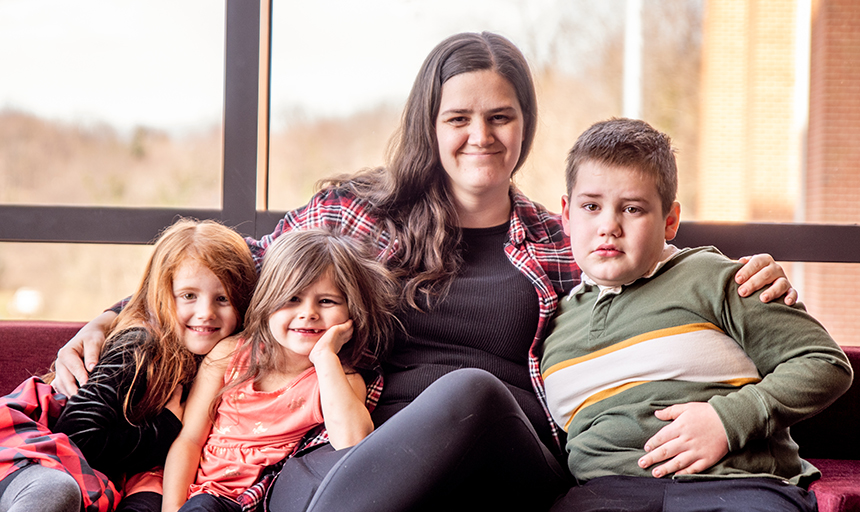"There is still so much we don’t know about these conditions."
March 28, 2018

In the lab, Allyson Herriges is searching for clues to a mystery that still perplexes scientists. Using genetic analysis and quantitative polymerase chain reaction technology, she’s examining how prenatal drugs affect autism risk genes and neural development in the embryos of zebra fish.
The project, which she designed in consultation with her professors, is part of a larger question with a deeply personal significance: can we detect autism earlier and help parents better understand their child's diagnosis?
“My son is autistic,” Herriges says. “His diagnosis is why I started studying this. I want to help parents understand their children and what their children’s diagnoses mean. There is still so much we don’t know about these conditions.”
Herriges, a psychology major who plans to go into autism research, also wants to be an advocate for people with disabilities. The disability studies concentration has helped empower her to be that ally.
“Navigating the special needs world as a parent, I know there isn’t always a lot of guidance or resources or support,” she says. “The disability studies courses are giving me that extra bit of education that will help me be a better advocate for my son and a better resource for other special needs parents.”
Her work at Roanoke College has offered her hands-on experience and close mentorships with her teachers. She added, "The professors here at Roanoke are incredibly passionate. That’s what this field needs if we’re going to create change.”